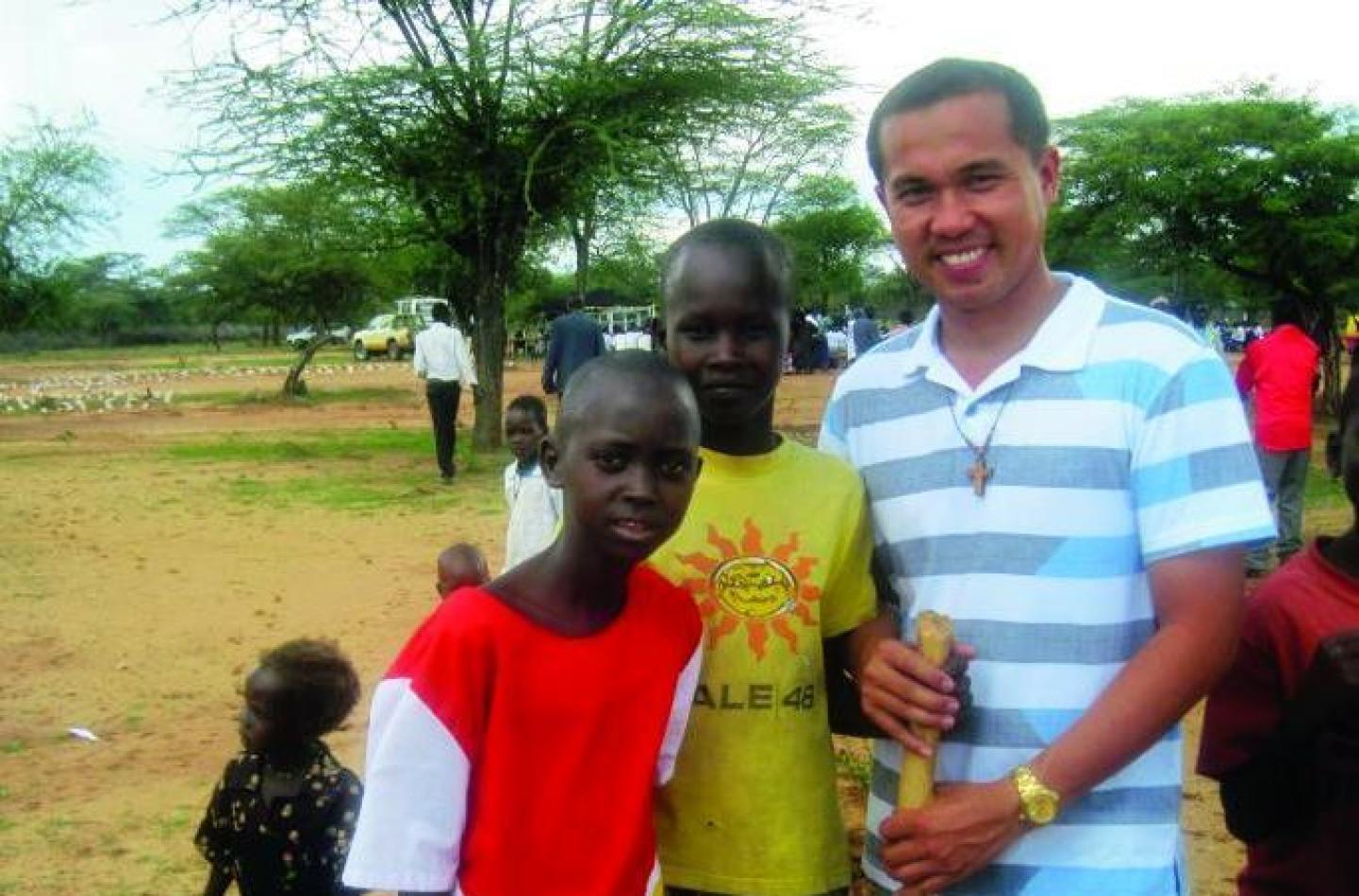Daniele Comboni
Missionari Comboniani
Area istituzionale
Altri link
Newsletter
Sunday, February 24, 2019
When a college student, Jemboy Caspis Salarde told his parents he wanted to be a missionary priest, they felt that such a vocation would deprive them of their only treasure. He waited. He even tried to put the call aside. Until he was no longer able to hold it back. Finally, the parents agreed: “Go with our blessing”. Today, he is working with the Pokots, an ethnic group of Kenya, certain that dad and mum understand that God desires their son’s happiness more than they do. [Comboni Missionaries]
I was born in 1984, in Sulop, in the province of Davao del Sur, in the island of Mindanao, southern Philippines, but I grew up in General Santos City, formerly known as Dadiangas. After my elementary education, I entered the Notre Dame of Dadiangas University, in General Santos City, a Catholic institution run by the Marist Brothers. I followed the course of Bachelor of Education as a ‘working student’. I worked for five hours in the morning, and then ran to the university to attend classes. Things got a bit better when I got the job as student assistant of a professor at my university.
During the second year at college, my friends invited me to camp, in a ‘Come and See’ programme run by the Franciscan Capuchins. The leaflet they put into my hands spoke of “a journey to discover one’s specific vocation in life”. For a year, we spent every weekend in praying and thinking about priesthood vocation. The idea of being a priest attracted me.
The problem was how to tell my parents. Somehow, they had already smelled a rat, and agreed on the strategy to follow in case I would come up with an ‘unorthodox’ option of life. So, when I dropped a hint that I could become a priest, they reacted negatively: “What will happen to us? You are our only child. How could you leave us alone?” The pain I saw in their eyes almost paralysed me, and I decided to put aside the idea of priesthood and concentrate on my studies.
But I had drawn the bill without the innkeeper. I had left out God, who never leaves things unfinished. In fact, when I was about to finish my college, we had the visit a young Filipino priest, of the Comboni Missionaries Institute, working as vocation promoter of his institute. As soon as I saw him, the old desire, which was lying frozen in my mind, began to thaw and revive. When he offered me the possibility to attend a retreat, without hesitation I said I would.
The retreat gladdened me. I had other encounters. After getting the diploma, I decided once again to wait. I signed a year-long contract to teach in a primary school. I liked teaching, but the call to be a Comboni missionary became stronger and stronger.
One day, back from school, I showed them the letter with which I had terminated the contract with the school. “I must answer the call. I want to join the Comboni postulancy”, I told them. Surprisingly, Dad said: “We will be crying when you go. Know, however, that you can go with our blessing. Only remember to be firm and strong. The life you have chosen is special. We will always support you”.
From then on, my life went as smooth as oil. At first, two years of Postulancy in Manila. Then, two years in Mexico for the Novitiate. Both periods turned out to be brilliant experiences that strengthened my decision to be a missionary.
In 2012, I was back in The Philippines for my first religious profession. A week later, I received the official letter that appointed me to Nairobi (Kenya), for my Scholasticate. In August, I set foot on African soil. I was full of enthusiasm and eager to begin my theological studies.
The first three months were a challenge. I had to adjust to the new culture. I even felt homesick: I missed the comfort and the way of life in my home. However, I soon learnt to love the new community and enjoy its internationality. The theological courses at Tangaza College in Nairobi were very interesting.
The real magic moment came during the first school holidays. I went to Kacheliba, a Comboni mission among the Pokot in the north of Kenya. I did not speak a word of Kiswahili or Pokot, but it was still possible to share my life with the people. What really counts in human relationships is to show interest in others. For four years, I spent any period free from school there. Gradually, the Pokots became ‘my people’, and I became their friend. The feeling of being expected was of indescribable beauty.
After completing my theological studies, I went to Kacheliba for a 1-year-long missionary service. Now I was able to get by with Kiswahili. Communication was possible. I discovered the amazing simplicity of this ethnic group and their good hearts. On 7th April, 2017, in Kacheliba Church, packed to capacity, I was ordained deacon.
I went back home for my priestly ordination. On 27th October 2017, my parish church was crammed. Bishop Dinualdo D. Gutierrez was surrounded by over thirty priests: confreres, friends from other congregations and of the diocese. My parents were beside themselves with joy. I felt in the ante-chamber of Paradise. I had realised my dream. I was overwhelmed by the immense love God had shown me.
At the beginning of 2018, I went back to Kenya among the Pokot. I do not want to be anything special. I only want to be true to God’s call which I have been hearing since I was a boy.
(Caspis Salarde Jemboy – Comboni Missionaries)




